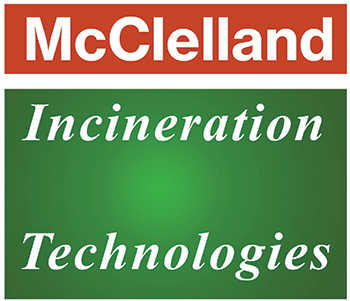
In every healthcare setting, from bustling hospitals to local clinics, dental practices, and pathology laboratories, the generation of clinical waste is an unavoidable reality. This waste, which includes everything from contaminated sharps and infectious materials to anatomical waste and discarded medicines, poses a significant risk to public health and the environment if not managed with utmost care. While often grouped under the broader umbrella of bio-medical waste, the specific needs of diverse clinical environments necessitate focused attention on effective disposal solutions. Clinical waste incinerators stand as a vital technology, offering a robust, hygienic, and compliant pathway for safe waste management.
Understanding Clinical Waste: A Diverse Challenge
Clinical waste is broadly defined as any waste generated during the diagnosis, treatment, research, or immunization of human beings or animals. Its hazardous nature stems from potential infectivity, toxicity, or genotoxicity. Unlike general municipal waste, clinical waste demands specialized handling due to the presence of:
Infectious Materials: Blood, body fluids, cultures, swabs, and dressings that may contain pathogens.
Sharps: Needles, syringes, scalpels, and other instruments capable of causing cuts or punctures.
Pathological Waste: Human and animal tissues, organs, and body parts.
Pharmaceutical Waste: Expired, unused, or contaminated drugs, including cytotoxic medications.
Chemical Waste: Discarded chemicals from laboratory procedures or disinfection.
The safe segregation and disposal of these diverse categories are paramount to breaking the chain of infection and preventing environmental contamination.
The Imperative for Secure Disposal in Clinical Settings
Improper disposal of clinical waste can lead to dire consequences. Infectious waste can spread diseases, sharps can cause debilitating injuries, and hazardous chemicals can contaminate soil and water. For smaller clinics or remote healthcare facilities without direct access to common bio-medical waste treatment facilities, on-site treatment becomes not just a convenience, but a necessity for immediate risk mitigation and compliance. Regulations, such as India’s Bio-Medical Waste Management Rules, mandate stringent protocols for the handling and disposal of all clinical waste, underscoring the legal and ethical responsibility of every healthcare provider.
The Unmatched Efficacy of Clinical Waste Incinerators
Clinical waste incinerators are specifically designed thermal units that provide a complete and irreversible solution for hazardous clinical waste. These advanced systems operate on principles of controlled high-temperature combustion, ensuring the total destruction of pathogens and drastic volume reduction.
Key advantages of deploying dedicated clinical waste incinerators include:
Complete Pathogen Inactivation: Operating at temperatures typically exceeding 850°C in primary and 1050°C in secondary combustion chambers, these incinerators ensure the complete destruction of viruses, bacteria, and other infectious agents, rendering the waste sterile.
Significant Volume Reduction: Clinical waste often includes bulky items. Incineration reduces the waste volume by up to 90-98%, transforming it into a small quantity of inert ash that is much safer and easier to manage for final disposal.
On-Site Biosecurity: For individual clinics or isolated healthcare centers, on-site incineration eliminates the risks associated with storing infectious waste or transporting it over long distances, enhancing overall biosecurity.
Odor and Pest Control: Immediate and efficient incineration prevents the putrefaction of organic materials, eliminating foul odors and deterring pests and scavengers.
Regulatory Compliance: Modern clinical waste incinerators are equipped with sophisticated multi-stage Air Pollution Control (APC) systems, meticulously designed to filter and neutralize flue gases. These systems effectively remove particulate matter, acid gases, heavy metals, and organic pollutants like dioxins and furans, ensuring that stack emissions adhere to stringent national and international environmental standards.
Mc Clelland Engineers: Your Partner for Compliant Clinical Waste Management
Mc Clelland Engineers Pvt. Ltd. understands the nuanced requirements of clinical waste management across various healthcare settings. As a leading incinerator manufacturer in India since 1985, we have dedicated our expertise to developing and delivering state-of-the-art Clinical Waste Incinerators that are robust, efficient, and fully compliant with the latest environmental regulations.
Our range of incinerators for clinical waste is designed for reliability and ease of operation, catering to the specific needs of diverse generators. From compact, user-friendly units ideal for individual clinics, dental practices, and small laboratories, to larger, higher-capacity systems suitable for multi-specialty hospitals or centralized treatment facilities, our solutions are engineered for maximum performance. We prioritize features such as automatic feeding, controlled combustion, energy efficiency, and advanced Air Pollution Control systems to ensure minimal environmental impact and optimal safety. Discover our commitment to advanced, responsible waste treatment solutions by visiting our official website, https://mcclellandindia.com/.
We are committed to empowering healthcare providers with the tools necessary for compliant and sustainable waste disposal. Our comprehensive manufacturing capabilities and product range ensures that every clinical setting, regardless of its size or location, can access cutting-edge technology for safe and effective waste management. Explore more about our specialized incinerator solutions at https://incineratormanufacturer.com/.
A Clean Future for Healthcare
Investing in appropriate clinical waste incineration technology is not merely an operational expense; it is a critical investment in public health, occupational safety, and environmental stewardship. By choosing advanced and compliant incineration solutions, healthcare providers can ensure their operations contribute to a healthier, safer, and cleaner future for all.

